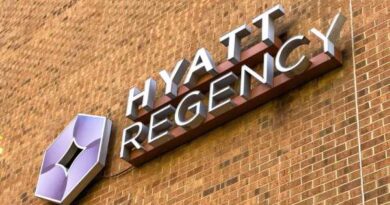Advisors wary of an omicron-driven wave of recalled commissions
Recalled commissions are a normal part of any agent’s workflow. But the omicron variant of Covid-19 has some advisors concerned about a potential wave of recalls stemming from cruise clients who cancel shortly before sailing or test positive just prior to boarding.
Commission-payment timing depends on the cruise line, but many will disburse commission at final payment — so a last-minute cancellation means that the commission has to be returned.
For John Bishop, the owner of AMS Travel Sales in Jacksonville, Fla., cancellations began shortly after the CDC advised Americans in late December to avoid travel by cruise.
“That was only a few weeks ago,” Bishop said in late January. “I’ve seen a big jump in cancellations of folks being nervous about traveling.”
The timing is particularly frustrating. While Bishop does book all types of leisure travel, cruising is a big part of his business. As he built his business back up from Covid’s initial hit, a number of clients booked cruises for January and February.
But cancellations and subsequent commission recalls, he said, combined with the fact that most government assistance for businesses has dried up, is “having an effect on the bottom line.”
Not everyone is feeling the pinch at the moment. Heather McIntyre, manager of technology and finance for Travel Experts, said the host agency wasn’t seeing many more recalled commissions than normal.
“We really aren’t seeing, right now, a ton of recalls coming in,” McIntyre said. “And it may just be that they’re not here yet, so I don’t want to say they’re not coming.”
Travel Experts pays out commissions to its advisors when the money is received, not after the clients have traveled, unlike some agencies. Because of the pandemic, the host agency made the decision to sit on the debt related to recalls until its agents had new bookings come in to cover the cost, a benefit for many of its independent contractors.
Recently, McIntyre has heard a handful of requests from agents asking the host not to pay them the commission because they are aware a recall is coming, but “it’s not a rampant problem” at this point.
But for Bishop, recalls remain a primary concern.
He’s had a number of cancellations associated with a group booking on Princess Cruises as well as a handful of clients cancel close-in trips with Celebrity Cruises.
“I’m a low-volume agency. I’m a high-touch service type,” he said. “So I don’t have a whole lot of volume, and the amount of cancellations that we’ve had compared to what I’ve experienced in the past is just much more damaging right now because of the commission recalls.”
Bishop did tip his hat to cruise lines that have opted to pay agents commissions earlier and called their early-pandemic decision to protect commissions on bookings “amazing and very generous.” But he said he believes a number of recalls are on the horizon that might surprise his peers.
Bishop’s group sailing on Princess consisted of 24 cabins before the omicron variant emerged. In total, 15 cabins sailed (two cabins tested positive for Covid in Fort Lauderdale the day before boarding). While bookings that carried the Princess Vacation Protection program would have provided him commission protection, Bishop said, the majority of the group declined insurance.
“2021 was a lean year just because of trying to rebuild that business, rebooking the cruises that kept getting canceled,” Bishop said. “It’s just a very frustrating time for us.”
While he said he believes larger agencies will be able to weather the storm, smaller, already hard-hit agencies might have a tougher time in the coming months.
In the meantime, Bishop sees a light on the horizon that, hopefully, will come after omicron’s peak is expected to subside: upcoming spring break cruises and the summer season in Alaska.
Avoya Travel has also witnessed a higher cancellation rate in recent weeks, co-CEO Jeff Anderson said, likely tied to omicron. But Anderson also sees a light on the horizon.
“The positive news is that most of these cancellations correlate with final payment dates and closer-in sailings and that we’re seeing a high rebooking percentage for a new date in 2022 or 2023,” he said. “We believe that as cases continue to slow down, we’ll see those cancellations stabilize and are optimistic for Q2-and-beyond departures.”
Source: Read Full Article




